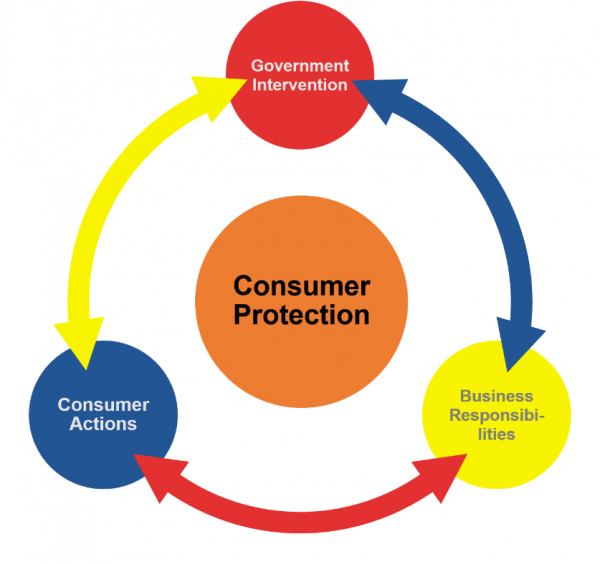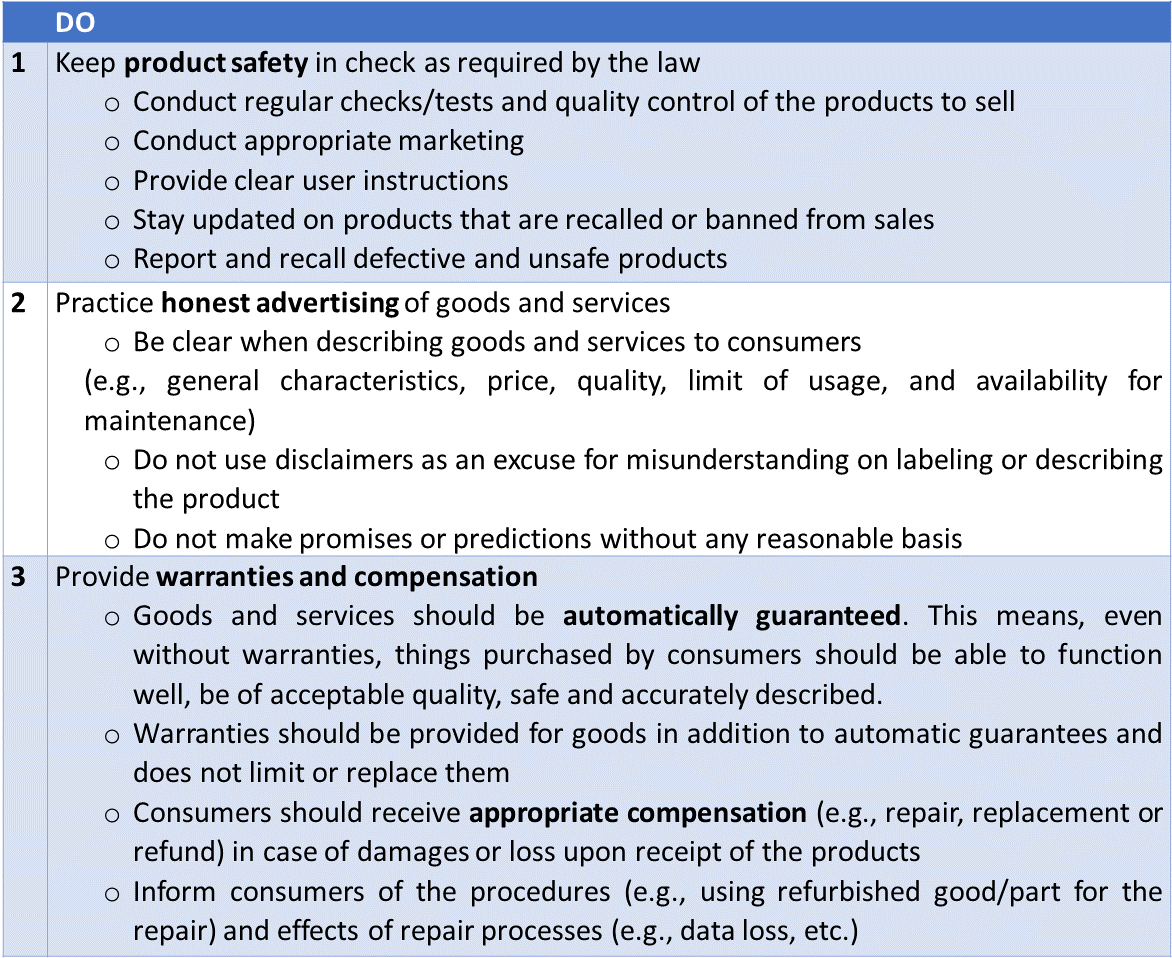Responsible Business
How do businesses contribute to consumer protection?
 |
Responsible business conduct is a crucial prerequisite for growth and innovation. If businesses compete fairly and offer products and services at good quality and reasonable prices for consumers to choose from, this promotes both competitiveness as well as consumption. As a result, citizens and the overall economy benefit. This is in line with Principle 3 and 4 of the ASEAN High-Level Principles on Consumer Protection for businesses to also be actively involved in ensuring consumers’ access to safe goods and services, as well as appropriate and convenient sources of advice and dispute resolution. |
With the emergence of cross-border e-commerce and economic digitalization, businesses also faces challenges in guaranteeing that consumers can seek compensations across state jurisdiction. This is particularly addressed in the ASEAN Strategic Action Plan for Consumer Protection (ASAPCP) 2025, in which the ASEAN Member States through the ASEAN Committee of Consumer Protection commits to publishing an Code of Conduct for Online Businesses, as well as generating a regional framework for cross-border cooperation and guidelines for B2C complaints handling. These are due to be finalized by the end of 2019.
What can businesses do to ensure consumer protection?
There are several ways in which businesses can build consumer confidence and guarantee that their rights are adequately protected.
When it comes to complaints, businesses are often the first point of contact. It is therefore important that they install a customer service or hotline, along with the necessary procedures, to deal with consumer complaints. While this is already fairly common and functioning within larger multinational companies, smaller companies may not be sufficiently aware (or convinced) of their obligations towards consumers.
Particularly in developing or least developed countries, these smaller companies can benefit from guidance that is based on international good practices, for example in the form of standard contract terms or other templates.
Such efforts need to go hand in hand with general awareness-raising campaigns in order to not only empower consumers to make the right choices, but to also mainstream consumer protection principles among the business community. The resulting commitments by businesses may lead to the adoption of general code of conduct, as the basis (or testament) for concrete action in individual companies.
As responsible business conduct is not only linked to consumer protection, it can also be discussed more broadly in relation to integrity issues (i.e. anti-corruption, competition compliance) as well as corporate social responsibility (CSR).
What can businesses specifically do to treat consumers fairly?



